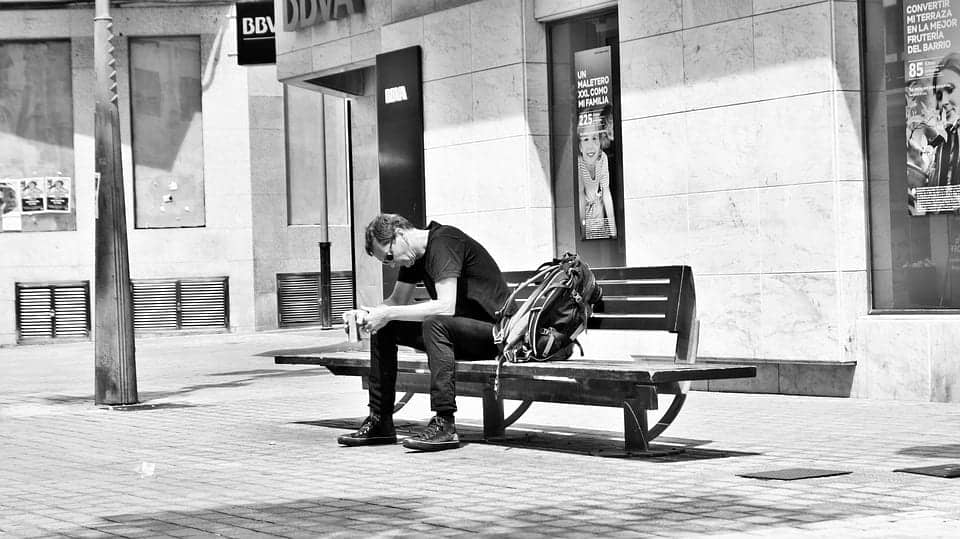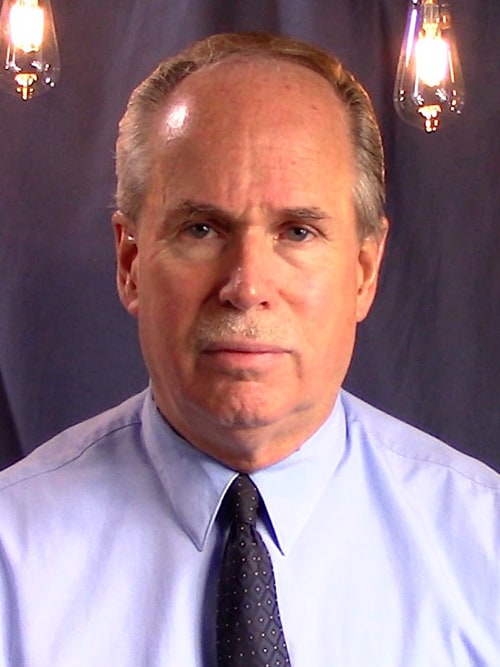We stand on the escarpment of a New Year. In many ways, it seems that what lies ahead doesn’t rally us with energizing hope, but rather it seems to rattle us with deep apprehension. From the vantage point we stand on at the beginning of this New Year, the landscape that lies ahead looks uncertain at best and disastrous at worst. We see a world reeling from decisions that we don’t understand, actions that appear to border on the irrational, and directions that seem to have forsaken any mooring that the founding principles of our nation might have given them or a sense of mortality might afford them.
We stand on the listing precipice of this New Year with a host of political agendas and secular philosophies promising rosy tomorrows and a year brimming with the brightness of a world throwing off the old and seizing the new. We hear the words and they tickle our ears, but in many ways we don’t see the landscape ahead reflecting what the words say it should reflect. While many have taken hold of the words hoping that they pan out, deep inside, many of us aren’t certain that the promises made and the agendas outlined are deep enough, rich enough, transforming enough or solid enough to really accomplish what they say they can accomplish. The reality is, we’re not all that certain that we want them to accomplish what they say they’ll accomplish anyway.
Resting in Hope Because We Can’t Rest in Anything Else
So, we rest in the hope that hope is enough because we don’t believe in the people that are preaching hope. We hope that hope will be strong enough to drive the political agendas and secular philosophies; bolstering and empowering them sufficiently to do what they grandly visualize in their documented frameworks, but what they can’t do on their own. Often, we don’t even believe in ourselves of in any manifestation of whatever this ‘self’ is that we are. Our hope then rests in hope, not necessarily in the viability of what we hope for and who we hope in. Somehow, we hope that it will all turn out okay.
But we might ask why do we do that? Why do we so often opt for something that’s really not going to do what we need done, out of the hope that hope will carry whatever this is when whatever this is can’t carry itself? Why do we settle like that? Why do we pin our hopes on something that will likely explode in our faces if we pin anything on it, much less hope?
Sidelined Bystanders
I wonder if at its core our issue is fear of assorted sorts. Fear that we’re far too small to do anything but hope for the best rather than fight for it. Maybe it’s an issue of being unable or unwilling to realize that we can actually impact things sufficiently to change things, rather than seeing ourselves as being exiled to some distant side line of life where we can do nothing more than sheepishly root for a life that’s far too far away to touch. Change is too often seen as an external thing that happens outside of our efforts, so we relegate ourselves to some periphery role where all we can do is hope with no means to exert any real influence. I wonder how often we see ourselves as hapless and helpless bystanders in a greater drama that we have no ability to impact, whether that’s the drama unfolding in our nation, or the drama unfolding in our lives.
We look around us at the wild spiraling of a culture relentlessly gyrating in some direction that appears unhealthy at best, and with no direction at worst. This massive “ship of state” or the various “ships” of our lives seem to be rolling on the churning seas of some wild societal storm with those at the helm announcing that the course is sure and the speed is steady. Yet, peering out from our obscure place on the deck of these enormous ships, it seems that their courses are entirely unsure and their speeds are anything but steady. Yet, despite the angst of the journey that we see before us, we feel far too small, far too irrelevant, and far too inconsequential to do anything about it. And so our best hope is to hang on and hope . . . or so we think.
Can You Make a Difference?
Are we simply bystanders living out some periphery role in some larger drama whose stage is far too massive for us to ever ascend? Are we doomed to haplessly sit by and watch our culture, our businesses, our marriage, our kids, our communities, or whatever it is that we might be watching spiral off into some cold, dark abyss? Will we engage the coming New Year without really engaging it because somebody else is already engaging it in a way that gives us no room to engage it?
Is it Actually Possible that We Might Have Power?
We might ask “what is power?” Is power derived from a collective of people whose numbers grant them power? Is it derived from a position of authority that’s derived from some established structure? Is power something granted to people by something bigger than the people to which it is being granted? Is power a product of social position, breeding, wealth, education, the ability to be relationally savvy, or culturally astute, or outrageously intellectual, or is it held by people possessing an elevated acumen of some sort?
Or, is it the average person who takes the ‘all and everything’ of what they have and engages their world with what they’ve got? That’s power! It’s the average person like you or I who realize that it’s the “little things” that change “big things.” It’s the small steps that ultimately result in giant leaps. It’s the average person faithfully living out lives of integrity in the everyday grind of everyday living that changes cultures, redirects nations, and rewrites history. Indeed, that’s power.
Ordinary People Who Do Extraordinary Things
Daryn Kagan wrote, “Bad things do happen in the world, like war, natural disasters, disease. But out of those situations always arise stories of ordinary people doing extraordinary things.” It is ordinary people who change the world because they’ve stepped up in situations both large and small, believing that whatever their situation might be they can make a difference either large or small.
It’s not about being ordinary. It’s about being available. It’s not about being ordinary. It’s about refusing to refuse opportunity. It’s not about being ordinary. Rather, it’s about recognizing that the great movements and moments in history laid on the back of ordinary people. It’s not about being ordinary. It about recognizing the power of the ordinary to be extraordinary simply by being ordinary. As Marco Rubio wrote, “America is the story of everyday people who did extraordinary things. A story woven deep into the fabric of our society.” The same story is woven deep into the fabric of our lives.
The New Year – Will We?
As we stand on the escarpment of this brand new “New Year,” we don’t have to relegate ourselves to some periphery role where all we can do is hope with no means to exert any real influence. We don’t need to be a hapless and helpless bystander in a greater drama that you have no ability to impact. We can live out intentional lives in our everyday worlds, being ordinary people of integrity engaging the world with integrity, and doing so believing that the smallest changes result in the biggest transformations.
And so, will we dare to understand that it’s the average person who takes what they have and engages their world with what they’ve got? Will we rise up sufficiently to grasp the reality that it’s the average person like you or I who realize that it’s the “little things” that change “big things?” Will we step out on the belief that it’s the small steps that ultimately result in giant leaps? Will we embrace the fact that it’s the average person faithfully living out a life of integrity in the everyday grind of everyday living that changes cultures, redirects nations, and rewrites history? If we do, if we faithfully embrace these truths and live them out, we will change our worlds and we will alter this coming year. May that be your commitment this New Year!

 Craig Lounsbrough
M. Div., LPC
Craig Lounsbrough
M. Div., LPC